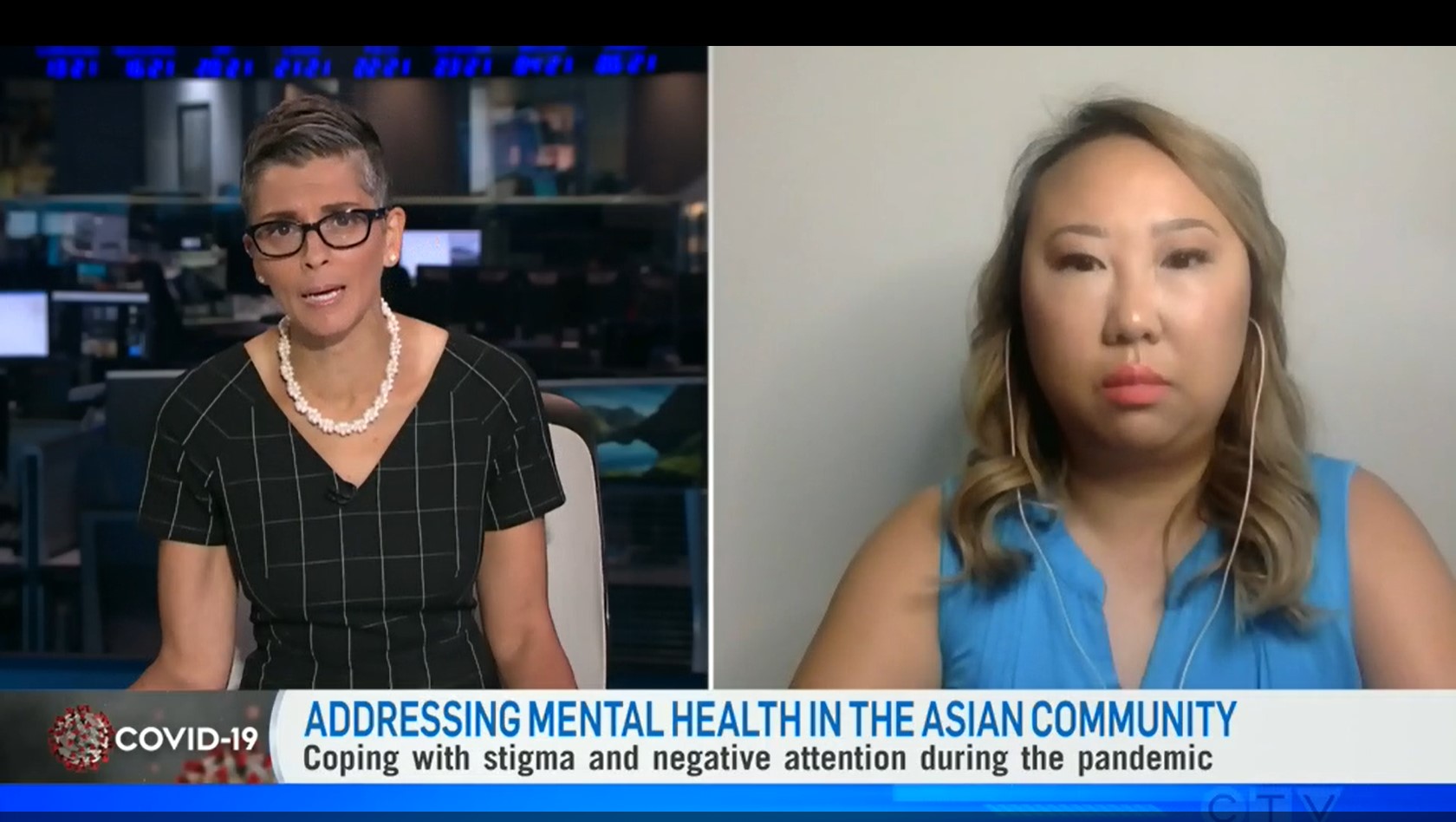Talk Therapy With Vera
Addressing Mental Health In The Asian Community
Vera Cheng speaks with Angie Seth from CTV News about coping with stigma and negative attention during the pandemic within the Asian community. Get in touch to book Vera Cheng for a speaking engagement.

Angie Seth: [00:00:00:23] Asians have been targeted, labeled, stigmatized, blamed for a virus they’re doing their best to stay safe from, like every other Canadian, but that negative treatment has left them vulnerable and scared, putting a major strain on their mental health. Vera Cheng is a psychotherapist, founder of Talk Therapy With Vera, and she says that there is a crisis in the Asian community that needs to be addressed immediately. Vera, thank you so much for giving me your time today.
Vera Cheng: [00:00:25:06] Thank you for having me.
Angie Seth: [00:00:26:05] What are you hearing? What are your what are people telling you? What are you hearing from your clients?
Vera Cheng: [00:00:30:12] I think, you know what a lot of a lot of my clients in the Asian community recognize that they’re having a hard time to cope because of the problems, they’re interfering with their professional and personal life. And I believe that it’s courageous for them to talk to a health professional. Despite that, they didn’t let their fear of being able to stop them.
Angie Seth: [00:00:50:01] Talk to me a bit about more about that courage that need to step to step forward and talk about what we know can be an issue that that the Asian community we see in other communities as well where, you know, mental health can be seen as a weakness. So, they tend to shy away from talking about it. But they’re now making that conscious decision to say, I need to talk about this, I need to get help, because it’s it is becoming a crisis in their life.
Vera Cheng: [00:01:19:09] I agree. I agree with you. I know you think that they automatically think it’s bringing shame to the family or even being discriminated against a community, but recognize that you’re not the only one who is struggling. And sometimes some of my clients are doing research online, like how many celebrities talked about their own mental health struggles or even how talk therapy have helped them.
Angie Seth: [00:01:44:05] Having those conversations about what it feels like to be labeled stigmatized, how detrimental it is to one’s mental health or can be to one’s mental health. How important are those conversations, not just for those within, say, the Asian community, but for that that general conversation as well?
Vera Cheng: [00:02:04:18] I think one thing is to, you know, have to be able to have compassion towards yourself because, you know, you are the one should be able to give your permission that you’re seeking help and putting your mental health as a priority and sometimes for myself as I share my own mental health struggle with them and let them know that I’m just as human as them. And even writing out a dialogue, a conversation with how you can open up on your mental health illnesses, it can actually help you to make the conversation easier with your family and friends.
Angie Seth: [00:02:43:01] So where do we go from here then? We’re still well into this pandemic as we try move out of it. But even we’re looking into the future when there are situations where, once again, that labeling, that stigmatization, that stereotyping happens to those within, you know, BIPOC (Black, Indigenous and People of Colour) communities.
Vera Cheng: [00:03:02:24] I think one thing it’s true. Sometimes you have to ask yourself in the mirror and, you know, and have the compassion to yourself and ask, well, what would I say to a friend who’s experienced a similar situation as me? And I think that’s important for them, because then, like I said earlier, it is very courageous for them to seek support. And it’s not easy.
Angie Seth: [00:03:27:06] Yeah, certainly isn’t. But it is so critical and so important in a in a really important conversation you and I are having here. Véra, thank you so much for giving us your time. Vera Cheng speaking to us from Toronto. Thank you for this, Vera.
Vera Cheng: [00:03:39:28] Thank you.